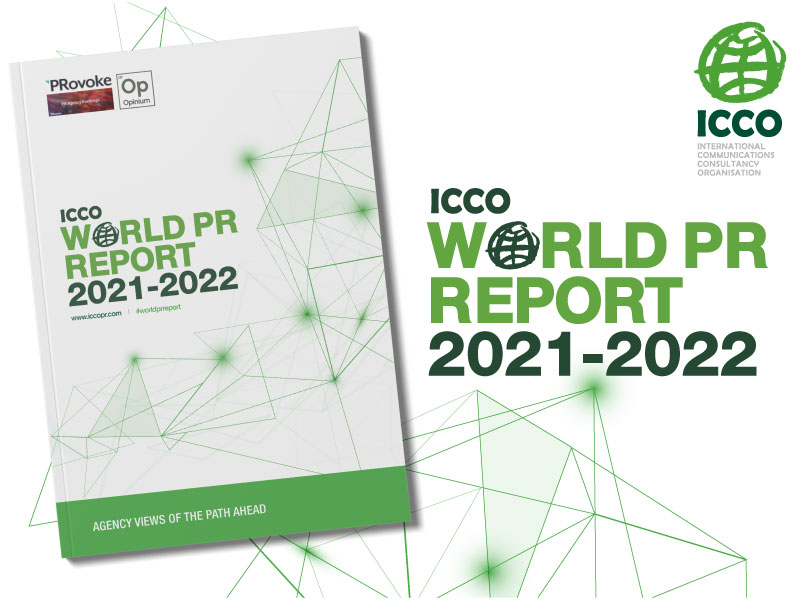
ICCO Africa President Bridget von Holdt reflects on this year's ICCO World PR Report's findings.
Learning new ways, managing expectations and delivering on client objectives remains the focus and priorities of the PR consultant regardless of the impact of Covid. Life goes on and our dynamic industry adjusts and performs accordingly.
Much like last year, the status quo is that the public relations industry has been affected as much as any other. Maybe even a bit more, when you consider how dependent it is on media attention, much of which has been consumed by other mask and lockdown-related headlines.
It is not just about the challenges of campaigns being put on hold, or having to re-build relationships, or navigate the shrinking media environment or even navigating the authenticity of online information, it is also about building, focusing on diversity and promoting an inclusive workplace as well as recognising the need to meet sustainable business practices.
Our peers remain optimistic about the future as they have settled into a new norm. Corporate Reputation was a growth area as well as an increase is crisis counsel and management. Healthcare, financial and professional services and technology were the highest performing sectors and it is expected that the demand will continue into the coming year. Technical and digital innovations are likely to shape agency offerings to clients going forward.
The pandemic made it difficult or impossible to meet in person at client meetings, industry events, and elsewhere. Sure, the whole planet learned to “Zoom” but there are still limits to contact in the virtual world. The drastic reduction in the amount of facetime, has led to previous contacts being lost and fewer new ones made.
One of the biggest challenges is not being able to meet up with journalists in person or have the opportunity to engage at media round tables or other similar events. We have learnt to put more effort into creating video footage and sound bites. We have trained our clients to effectively deliver messages online.
It’s difficult to keep track of which reporter or key contact at which media outlet still covers a particular industry or area, as many media outlets continue to downsize, rely on freelancers, or reconfigure. This pivot to an increasingly remote workforce at media outlets has made it more difficult to be able to connect with the right person for the pitch via phone and in-person networking opportunities are only just now ramping back up. We’ve been able to overcome this challenge by creatively utilising other available avenues of communication, like Twitter and LinkedIn.
As for clients, we are so used to doing all business meetings on Zoom, Teams or Google Meet and when we want the personal touch, we actually pick up the phone and make a call.
One real issue is landing your story in a top publication. Getting noticed by the journalists has really become a difficult task. These top publications receiving 100’s of pitches a day, so getting attention is difficult. And to add to the pressure, they are receiving pitches from email, text, phone calls, DMs, LinkedIn requests, Tweets, Instagram and TikTok comments, and more. The competition for attention is fierce.
Talent retention and attracting senior talent remains a priority for consultancies now and into the future. While the talent is there, the corporate sector is attracting the practitioners. The time is not to look after staff, plot their career paths and provide flexibility in the working environment.
The World Report results are a valuable indicator of where consultancies can adapt to meet the needs of employees and clients and lead them into the future.
